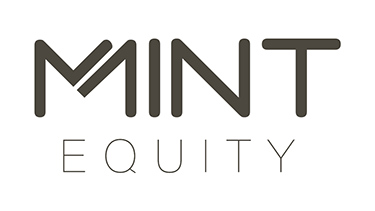New data published by CommSec showed stock market investors saw a rally of 11.4% on their average ROI in the 2018/19 financial year. Meanwhile, property investors saw a decline of 3.6% on their ROI.
In addition, June data from CoreLogic shows that while both owner-occupier and investor lending has slowed, investor credit is at a historically low growth rate of 0.7%.
So what does that mean for investors looking to get the best return possible? Zac Peteh, director of Mint Equity took time out to answer some questions from industry publication, Australian Broker magazine.
If investors can get 11.4% in shares, will they still invest in property?
“Absolutely, investors will continue to invest in property even with an 11.4% return in shares over 2018/2019. Whilst the Australian shares are performing well at the moment, and in fact new data from January 2019 shows solid growth, shares can be a complicated beast. When comparing property with shares, property feels easier for most investors given the tangible nature and the lack of complexity of the asset class. Understanding the property cycle, asset class, valuations and capital growth is far easier to get your head around than share prices, bullish and bear markets and the volatility of picking the right share, at the right time. Australian property feels more stable and accessible, which is comforting to investors. I think for anyone who went through the GFC and saw their shares and superannuation virtually vanish overnight, there is a reluctance for them to enter into the share market, regardless of the potential return. And whilst property values did drop as a result of the GFC, many took comfort in knowing that they still had a roof over their head, even if their shares and superannuation took a hit.”
What will this mean for property market performance over the next financial year?
“A lot of investors see shares as part of a diversification strategy, not a replacement for property. Investors will continue to invest in property, however if share returns are a key driver, we may see the property purchase price bracket drop to allow investors to have both shares and property. With property prices falling, now is the time to buy and benefit from future years capital growth. It’s likely property vs shares 1-year returns won’t be the same, but for most, property investment is a long-term strategy, so capital growth over a 10-20 year period combined with good yields is still likely to outdo share returns for the same timeframe.”
Have regulators and banks done enough to stimulate investor appetite for property since the downturn?
“We’re seeing a softly-softly approach from regulators and banks to stimulate investor appetite. The reality is serviceability is still tough for borrowers, even if banks are offering low interest rates for investment loans. The biggest impact to the investor market was the Federal Election uncertainty, and Labor’s housing policy, which could have been detrimental to the investor market in the longer term. Now, with the threat of investor regulations and tax restrictions gone, investor confidence is returning. Efforts from APRA to ease restrictions on serviceability calculations is good, but unlikely to result in an investor boom. Bank credit assessors are nervous about making the wrong decision given the findings from the Banking Royal Commission, and valuers are being over cautious which is impacting borrower’s approvals. These are the biggest issues for investors at the moment.”
What's the outlook for the performance of property, compared to shares, over the next financial year?
“Performance of the property market in the next 12-24 months is likely to be positive for investors if buying or holding, given we are at a low point in values. Those investors who can secure finance now while buyer demand is relatively low, stand to benefit from property values improving in the coming years. Investors are being selective and demanding higher yields than previously, adding pressure on buyers to reduce prices. Whilst ROI on shares have been strong in the last year, the monetary volume spent on shares vs property is vastly different that even if the returns of property is half that of shares, the capital growth is the driving factor for investors choosing property over shares. We are already seeing an uplift in investor activity since the election and given mortgage brokers support almost 60% of all loans being sourced, the trend is positive for clients looking to utilise the services of mortgage brokers.”
References
30 years in Australian and Global Shares
The Historical Average Annual Returns of Australian Stock Market Since 1900


